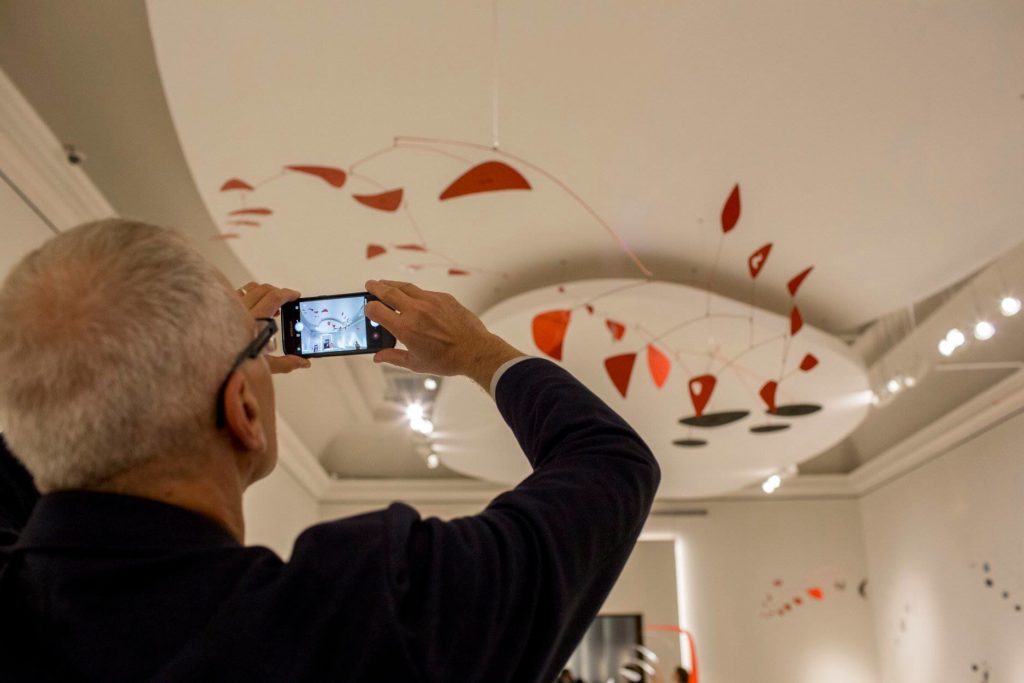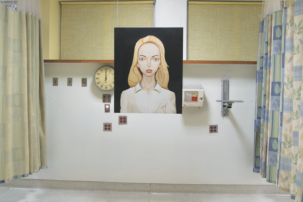Some Canadians suffering from depression, anxiety, diabetes and other ills now have another kind of prescription they can get from their health-care provider—namely, a prescription for a free museum or art-gallery visit.
Last week, the Royal Ontario Museum in Toronto announced it would be expanding a pilot project that will permit practitioners at the Rexdale Community Health Centre, and 19 other similar centres in the city, to prescribe a free museum visit to those who need it. It’s part of a collaboration with the Alliance for Healthier Communities, which is studying the impact of social prescriptions on health, in partnership with various organizations.
“We started the pilot with Rexdale Community Health Centre in summer 2018,” ROM director and CEO Josh Basseches tells Canadian Art. “Each prescription pass allowed for four visits.” As of January 1, 2019, the expanded 20-centre program will be in effect, with a total of 5,000 passes available, and up to four people per pass, permitting 20,000 visits in total.
Admission to the ROM is typically $20 per adult. The free prescription-visit pilot is funded under the umbrella of the museum’s 10-year-old ROMCAN access initiatives, which already provides selected free-access tickets through more than 100 community organizations in Ontario. Private supporters of ROMCAN include the Bennett Family Foundation, the Cheng family, the Peter Gilgan Foundation, the Patrick and Barbara Keenan Foundation and the MacMillan Family Foundation.
In November, the Montreal Museum of Fine Arts also began a one-year pilot project offering free visits by prescription in partnership with Médecins francophones du Canada. Doctors who register with the museum will be willing to issue up to 50 such prescriptions over the course of the year, with each pass good for two adults and two youths. The program follows on another pilot in 2017 that made it possible for doctors to recommend group art therapy sessions at the museum to certain patients.
“I am convinced that in the 21st century, culture will be to health what sports were in the 20th century. Today, doctors prescribe exercise; tomorrow, they may prescribe a visit to a museum or a concert.”
“There’s more and more scientific proof that art therapy is good for your physical health,” Hélène Boyer, vice-president of Médecins francophones du Canada, told the Montreal Gazette regarding the program earlier this fall. “It increases our levels of cortisol and our level of serotonin. We secrete hormones when we visit a museum and these hormones are responsible for our well-being.”
Admission to the MMFA is typically $15 for people over 30 years of age. In recent years, the museum has delved deeper into issues of health and wellness with the opening of its International Atelier for Education and Art Therapy, supported by patron Michel de la Chenelière. It also runs an Art Therapy and Wellness Program supported by the Rossy Family Foundation.
The effects of what are called “social prescriptions”—that is, prescriptions beyond traditional drug and medical therapies—have been studied for some years in the UK. One British study notes that an East London Arts on Prescription project began in 2002, a Nottingham Arts on Prescription scheme began in 2005 and the Dulwich Picture Gallery initiated a prescription for art program in 2010.
Though the art-by-prescription projects in Canada only got big profile this year, such projects have been on the mind of MMFA director Nathalie Bondil since at least March 2016. At that time, she told Canadian Art, “I am convinced that in the 21st century, culture will be to health what sports were in the 20th century. Today, doctors prescribe exercise; tomorrow, they may prescribe a visit to a museum or a concert.”
Soon, more Canadian museums and galleries might come on board. Kate Mulligan of the Alliance for Healthier Communities in Toronto told the CBC that since the ROM announced its prescription pilot participation last week, more institutions have expressed interest.
“It’s really great when major organizations also see the benefits and want to partner with us to see whether this is really having an impact for people,” Mulligan told the CBC.

 A visitor to the Montreal Museum of Fine Arts photographs an Alexander Calder sculpture. The MMFA, like the ROM, is engaged in a visits-by-prescription pilot program. Photo: Facebook / MMFA.
A visitor to the Montreal Museum of Fine Arts photographs an Alexander Calder sculpture. The MMFA, like the ROM, is engaged in a visits-by-prescription pilot program. Photo: Facebook / MMFA.







